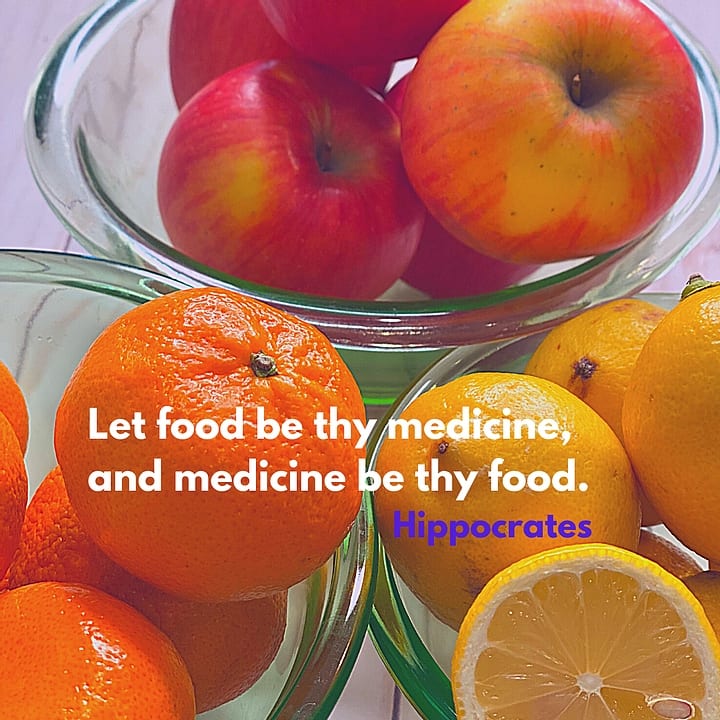
4 min read
Guest post by Kristen Coffield, author & founder of The Culinary Cure, a platform dedicated to helping people use food to change their lives.

Kristen is a passionate advocate for food as medicine. She reinvented her life after a series of events that left her health compromised, spiritually depleted and emotionally drained. Taking the simple daily habit of eating, Kristen turned what was on the end of her fork into a superpower to fuel her best life. Here she breaks down 5 key ways to eat for hormone balance.
Elektra was thrilled to host Kristen Coffield for a salon in October 2020. Watch the recording below (password = ELEKTRA) and read on for more great tips from Kristen.
5 Ways to Harness The Power Of Food And Habit For Hormone Balance
Ease the hormonal transition into perimenopause and through menopause and beyond by adopting an anti-inflammatory lifestyle that helps you thrive.
I. Start Each Day With Water
Rehydrating after that fast that occurs during sleep is essential to help balance hormones. Water is used by our bodies to carry out normal metabolic functions—things like removing waste from cells, regulating body temperature, and digesting food.
When we are asleep, our body is in a state of fast. The best way to end the fast is by rehydrating with 8-10oz of warm or room temperature water. Every morning the first beverage should be water. Enjoy your coffee after a big hydrating glass.

Boost your water with the juice of half a fresh-squeezed lemon. Lemon adds vitamin C, flavor, and acidity, which turns alkaline in the body. More alkalinity and less acidity help lower inflammation in the body. Lower inflammations beneficial for regulating hormones. Starting each morning with water is an easy habit to cultivate. And don’t stop there; a properly hydrated body can use 8-10oz of water an hour for 10 hours a day.
TIP: If you do not measure your water, you might not be drinking enough!
II. Dial Back Morning Sugar
Eating breakfast within one hour of waking will ensure stable blood sugar levels and start the day right.

Breakfast is typically the sweetest meal of the day. Grain-based breakfast foods tend to have added sugar or be refined, making them turn into sugar in the body — even plain toast can contain as much extra sugar as a small candy bar.
TIPS:
- Eat no-sugar, no-grain breakfasts.
- Consume high-protein, high-fiber, plant-based breakfast foods.
- Include fiber, fat, and protein.
Breakfast ideas:
- Humanely raised eggs (scrambled, fried or boiled — or a frittata with vegetables)
- Berries and nuts
- Chia pudding
- Plain organic whole-fat or nut milk yogurt with fresh fruit and nuts
- Apple slices with nut butter
- Baked sweet potato with bacon
- Smoked salmon with or without eggs
- A breakfast salad with avocado and hard-boiled eggs
III. Eat More Foods Without Labels
Eat more whole foods, like fruits and vegetables. Don’t be afraid of the natural sugars found in fruits, vegetables, and dairy products. The body knows what to do with real whole foods that have not been processed, refined, and filled with added chemicals and sugar that disrupt hormone balance.

TIPS:
- Berries are a naturally-sweetened low-carb treat
- Apples and oranges have lots of fiber and vitamins
- Raw nuts make a great grab and go snack
- Celery & carrots, and lots of greens
- **Skip bananas and grapes: They break down quickly and raise blood sugar faster than other fruits
- ** Don’t juice your fruit. When you drink only the juice, you destroy the fiber and turn healthy fruit into a sweet beverage with nearly as much sugar as soda
IV. Avoid Food Triggers
Stabilizing blood sugar levels and keeping cravings in check and significantly reduces menopausal symptoms. Reducing and eliminating foods that cause digestive distress and inflammation help us feel more balanced and less stressed.
Minimize
Gluten, factory-farmed dairy and eggs, soy, corn, added sugar, nightshades, and artificial ingredients. Are linked to hormone-disrupting low-level inflammation.
Manage Coffee and Alcohol
Instead, sip green and herbal teas, which have more wellness benefits. Try kombucha, a fermented tea beverage containing beneficial polyphenols, B vitamins, and probiotics. Always stay well hydrated with filtered water and limit alcohol to two or three alcoholic drinks a week.
V. Practice Better Sleep
Sleep is the lynchpin for hormone balance. Even one night of inadequate sleep can trigger cravings, spike blood sugar, and wreak havoc with hormones.
Sleep is an essential part of our circadian cycle, providing time for flushing cellular debris generated by the body’s metabolic activity. We NEED at least 7 hours of sleep a night to have regular, healthy levels of fluctuating hormones in our body.
TIPS:
- Maintain regular sleeping patterns. Try to go to bed and wake at the same time consistently.
- Prepare for a good night’s sleep. Turn off your electronics an hour before you want to fall asleep. Read paper books, practice meditation, pray or write in a journal.
- Create a sleep ritual. Write down something you are grateful for, make a to-do list for the morning, and sip chamomile tea. Diaphragmatic breathing exercises are a great way to prepare for sleep.
- Make sure your room is dark. Block as much blue light from electronics and ambient light from your bedroom as possible.
- Turn the temperature down. Sixty-five degrees and below creates the best temperature for deep sleep.
- Make sure your room is quiet, wear earplugs, use a HEPA air filter or white noise machine
- Reserve your bed for sleep and sex. Get the TV out of the bedroom and get off your gadgets when in bed.
- Take a magnesium supplement at bedtime. Magnesium is responsible for over 300 enzyme reactions in the body, notably helping cells create energy. Magnesium helps anything tight relax and can improve sleep quality. Try 300-800mg of magnesium citrate, glycinate, taurate, or aspartate before bed.
- Drink sleep-promoting herbal tea. There are many delicious sleep-promoting teas like Chamomile, Lavender, Holy Basil, and Ashwagandha. Try making a medicinal dose by steeping two tea bags for 3-4 minutes and drinking before you head up to bed.
It’s hard to make several changes at once. We recommend choosing one or two items from the list above and practicing forming new habits around them over the course of a couple of weeks. Write quick notes about your progress and how you feel along the way. Your body and mind will thank you!
For more hormones & nutrition tips & recommendations, visit Kristen’s website: https://theculinarycure.com/.



